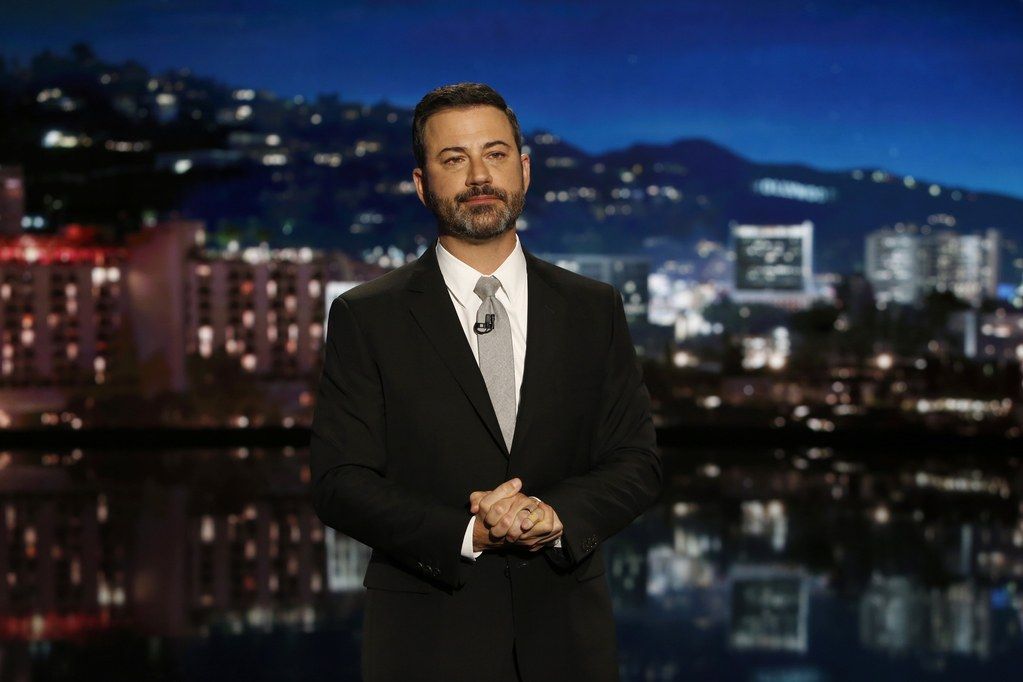The state of US late-night comedy
If you asked any TV viewer to name an iconic late-night host, chances are that Jay Leno would be right near the top of the list – it is fair, then, that his views on the current state of last-night comedy carry some considerable weight. During a recent interview at the Television Critics Association’s winter press tour, Leno refused to say whether he had a favourite late-night host, before reflecting on the differences between the comedy climate when he was hosting The Tonight Show and nowadays. His thoughts pave the way for an interesting discussion on the late-night TV comedy scene of 2018, and lead to an interesting question about how to go forward.
In the interview, Leno states that he believed he was “fortunate” because he hosted at a time when political satire was simpler: “Bush was dumb and Clinton was horny.” Nowadays, everybody is “so serious” and they all have “the same topic – depressing Trump stuff.” He also lamented the fact that there is “such negativity,” with every joke being criticised as anti-something.
Now, dealing with politics is something that late-night TV has always done and should always do – the whole point of satire is to cast a critical eye on the halls of power but make it enjoyable, and some of these comedians are getting the balance about right. There is also a clear demand for political satire in the USA – Jimmy Fallon has attempted to carve a less political niche, and is suffering in the ratings in comparison to more political rivals like Stephen Colbert. (A supposed fluff interview with then-candidate Trump was what really started Fallon’s decline.)
The issue with US late-night humour is not that they are being political, but that they all have exactly the same views – the late-night hosts are an example of conformism at its very best. A recent tweet highlighted an incredible level of conformity on display – the ten late-night hosts all belong to the same political party, endorsed the same candidate in the 2017 presidential election (although, to be fair, effectively everybody in the industry did) and they all have exactly the same stance on every political issue. (Apparently, conservatives are too dumb to host late-night television, because you need a real genius to read other people’s jokes on an autocue.)
Again, this isn’t an issue in itself – if a joke is funny, that’s all there is to it. The problem isn’t even that a lot of the humour is lazy and weak (another ‘Trump voters are racists’ gag – how original), and attack half the population at a time at the same time they decry a feeling of division in the country. No, the issue is that we tend to be skirting around humour to a worrying degree and just dealing with politics. I don’t tune into a comedy programme to receive a lecture, but that’s what watching half of these programmes feels like.
Satirists need to focus on holding all those in power to account, and not just those that they disagree with
I get that some things transcend comedy, and I don’t mind that – it would be impossible not to feel moved as Jimmy Kimmel cried over the victims of the Parkland school shooting, for example. But tuning into US comedy shows nowadays feels like tuning into a broadcasting wing of the Democratic Party, to the extent that it was actually newsworthy when Saturday Night Live had a sketch that attacked the Democrats.
This really came to the fore during the healthcare debate. Jimmy Kimmel often dealt with the issue in his opening monologues, with his bringing in his baby on one of the shows as, essentially, a prop – Kimmel’s child was born with a serious health issue, and Kimmel used his own story to argue against some of the proposed health reform. Except it wasn’t just his story – he was being fed talking points by Democratic Senate Minority Leader Chuck Schumer. Rather than cracking jokes or engaging in a serious discussion of the subject, Kimmel had become the mouthpiece of the Democratic Party.
Comedy shows need to focus, primarily, on telling jokes. Satirists need to focus on holding all those in power to account, and not just those that they disagree with – research has shown that the level of one-sided humour is actually creating sympathy for President Trump. Late-night hosts should be entertainers first and foremost, and they would find that using humour to promote and discuss issues is a far more powerful way to engage an audience than using their platforms to preach and lecture.

Comments